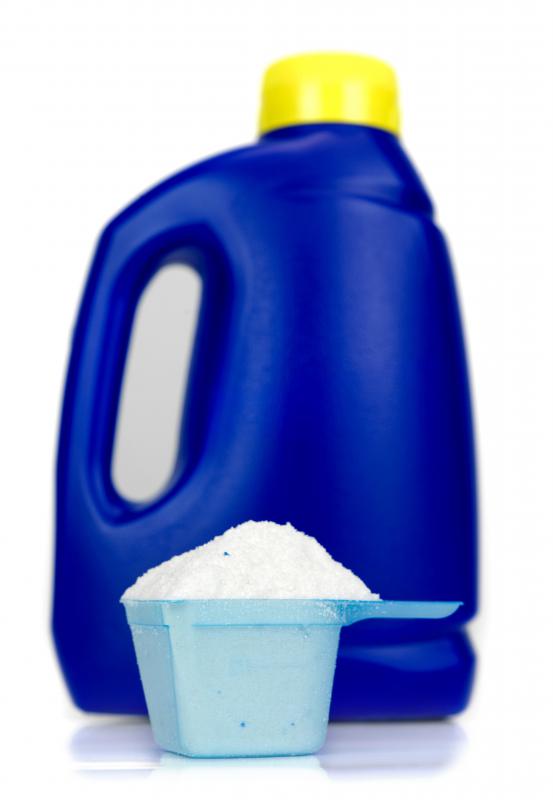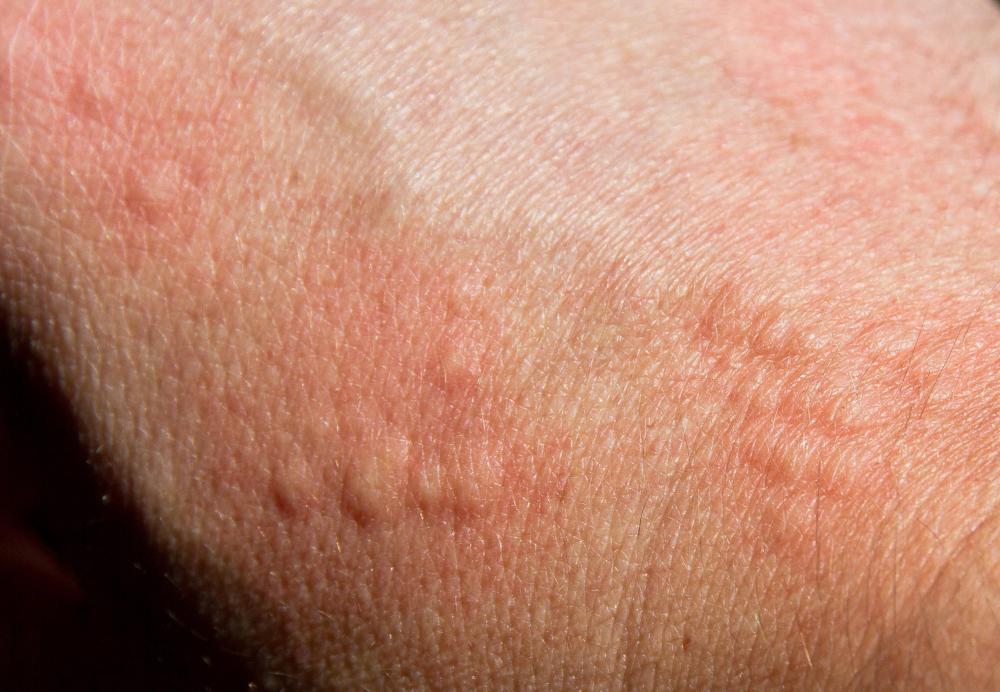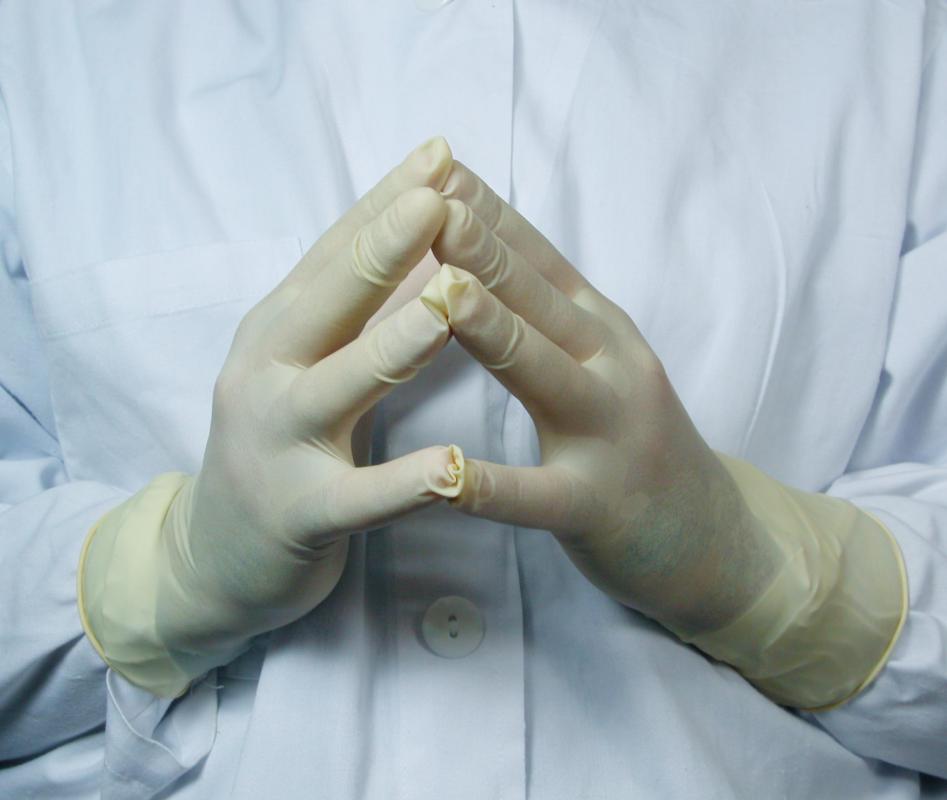At WiseGEEK, we're committed to delivering accurate, trustworthy information. Our expert-authored content is rigorously fact-checked and sourced from credible authorities. Discover how we uphold the highest standards in providing you with reliable knowledge.
What are the Different Types of Allergic Skin Reactions?
Allergic skin reactions can vary based on the severity of the allergy and the source. Typically allergic reactions present themselves as rashes, hives or blisters, swelling, and raw areas of skin. Various allergens can cause an allergic skin reaction, ranging from plants like poison ivy to food allergies.
The most common allergic skin reactions generally involve some type of skin rash. Rashes generally involve red patches on the skin which may be splotchy, patchy or solid. The redness is often accompanied by itching and sometimes burning depending on the individual and the source of the allergy. If no swelling is present along with the rash, it may be mild enough to treat at home with an anti-itch cream or over the counter allergy medication. If the source of the rash is a common allergen or skin irritant — such as poison ivy — cleaning the area and thoroughly washing any clothing that has come in contact with the rash is needed to prevent reinfection.

Although redness occurs with most allergic skin reactions, some more severe allergies are also accompanied by swelling, oozing, blisters, hives, and sometimes even bleeding if the skin has become very irritated. In many cases, skin irritation — such as hives — will go away on its own once the source of the allergy has been removed. If symptoms do persist for long periods of time with no improvement, a doctor should be contacted.

Common allergens which cause allergic skin reactions include scented soaps and shampoos, laundry detergents, and other perfumed items that come in contact with the skin. If an allergic reaction seems to be confined to the skin, meaning there are no other symptoms like shortness of breath or dizziness, then the first step in recovery is finding the source of the irritation. Sufferers should remove one item from their daily routine at a time and take note on the condition of their skin reactions. If the rash and irritation disappear after something specific has been removed, this is likely the cause of the reaction. Once everything has been ruled out, a visit to the doctor may be in order if irritation persists.

Severe food allergies can also sometimes result in allergic skin reactions. Those who suffer from extreme peanut or shellfish allergies have been known to break out in hives and welts simply from being in the same room with the offending food. If this is the cause for allergic skin reactions, then the food or substance should be removed before any attempts at healing skin irritation are made. If other, more severe, symptoms also occur, it should be treated as a medical emergency and assistance should be sought immediately.
AS FEATURED ON:
AS FEATURED ON:



















Discussion Comments
@pastanaga - Just be careful with assumptions like that, because allergies can quickly become a very serious problem. You might think it's easy to live with the occasional rash or watery eye, but that can eventually lead to breathing problems if your exposure is enough and you've got a real allergy.
I have a dust allergy and it usually just makes my nose run if I'm in a dusty room. But one time I was having to clean up a room that hadn't been vacuumed for a long time and I managed to get some dust in my eyes and face. Everything swelled up much more than I expected, including my nose and even my eyeballs. It was actually quite frightening and made me realize I should take my allergy more seriously. If it could affect my lungs in the same way I would be in real trouble.
@Mor - Well, you probably would have had a worse reaction over time if you had more exposure, or if you did something like spill the detergent straight onto your skin or something like that.
I hope you made a note of whatever ingredients that new detergent had that were not present in the one without the allergic reaction.
Although it's possible that it was somehow chafing your skin or otherwise affecting it and it wasn't technically an allergy. My eyes are really sensitive to some kinds of chemicals, but I don't think it's an allergy so much as that they just get more irritated than the average eye.
I actually thought I had bedbugs for a while after I started using a new detergent for my clothes but it turned out that I was just allergic to something in the formula. I always thought an allergic skin reaction would be more dramatic than that, but it was just a bunch of small, itchy bumps, like insect bites.
They went away as soon as I switched back to my usual detergent.
Post your comments